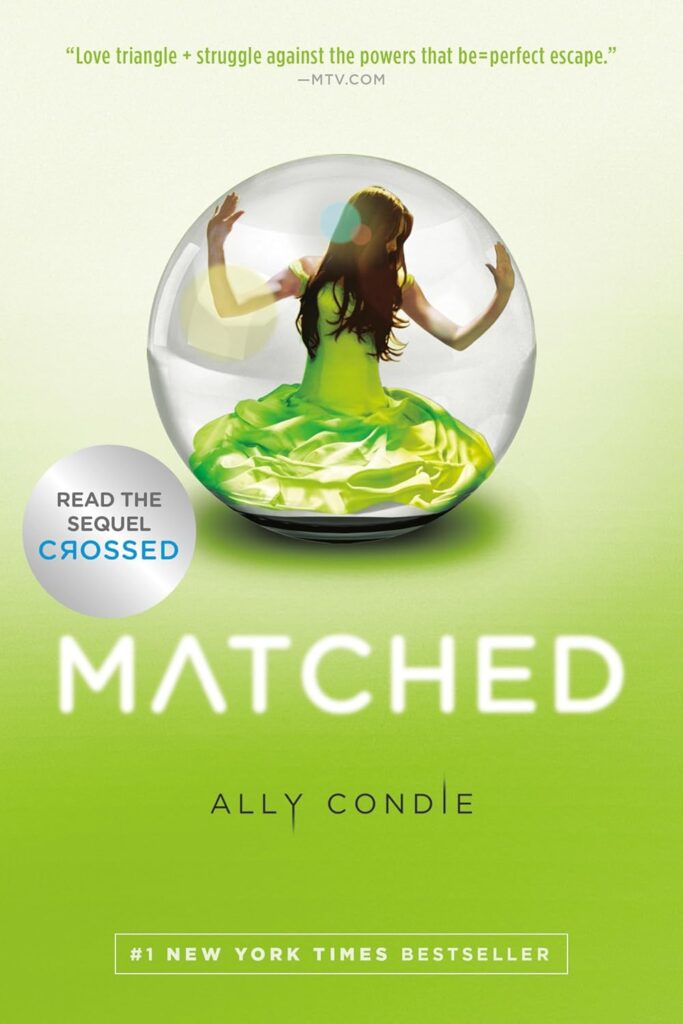Dystopian novels are all the rage these days. From The Hunger Games to Divergent, these stories pull us into worlds that look familiar but twist our reality into something darker, more controlled, and more terrifying. One book that fits snugly into this genre, yet still brings something fresh to the table, is Matched by Ally Condie. It’s not just another cookie-cutter dystopia. It feels different. It feels personal. So, how exactly does Matched belong to this genre, and what makes it stand out in the world of dystopian fiction?
Let’s dive into the depths of what makes Matched a dystopian story worth reading—and worth thinking about.
1. A World Where Choice Is Stripped Away
Imagine a world where every significant decision is made for you. It sounds crazy, right? In Matched, the Society, a government-like body, controls almost every aspect of life. From who you’ll marry to the job you’ll work, to even when you’ll die—it’s all meticulously planned out. In this world, free will is not just rare; it’s nonexistent.
One of the core traits of any dystopian novel is this removal of personal freedom. Think about it: in a dystopia, the world is often twisted by oppressive regimes, controlling technology, or disastrous environments. This control strips away individuality, and Matched shows us that loss in a chilling way. Cassia, the protagonist, grows up in a Society where she’s taught that these decisions are for her own good. It’s safe. It’s structured. It’s comforting—at least, at first.
But as she starts to question these norms, we see the true nature of the dystopia unfold. What begins as a seemingly utopian society with perfect order slowly reveals itself as a place where people are mere pawns. They have no power over their futures, no say in who they really are.
In this, Matched holds a mirror to our own world. How much of our lives are governed by unseen forces? While we might not live in a total dystopia, the novel raises questions about the subtle ways our choices are influenced by the world around us. It’s a slow burn, but it gets under your skin. Before long, you start to see the Society’s rigid control everywhere.

2. Love as Rebellion
Now, here’s where things get really interesting. In many dystopian novels, love often becomes a form of rebellion. Matched takes this theme and runs with it. The whole premise revolves around Cassia being “matched” with her ideal partner—a scientifically chosen spouse. It’s all very controlled, calculated, and supposedly perfect. But then, something goes wrong. Instead of just one match, Cassia briefly glimpses another possible partner: Ky.
This is where the dystopian element shines. The very idea of falling in love with someone the Society didn’t pick for you is radical. Love becomes dangerous. It’s an act of defiance. When Cassia begins to develop feelings for Ky, she’s not just breaking a rule; she’s challenging the entire system. And this is where the heart of Matched lies—it’s about questioning the system and daring to think that maybe, just maybe, the people in power don’t always know what’s best for you.
The love triangle (and I know, love triangles have been done to death) in Matched feels deeper because it’s not just about choosing between two boys. It’s about choosing between a safe, predictable life and the terrifying unknown. That’s a powerful metaphor for any young reader—or, honestly, anyone at any age. Do you stick with the path laid out for you, or do you take the leap and risk everything for what your heart tells you is right?
3. The Fight for Individuality
At its core, dystopian fiction is about more than just oppressive governments or bleak futures. It’s about the human spirit. In Matched, the dystopian world Condie creates is a reflection of the battle for individuality. From the very start, Cassia is told who to be, what to think, and how to act. But as the story progresses, she starts to break away from these constraints, gradually discovering who she truly is.
This journey of self-discovery is what makes Matched so compelling as a dystopian novel. Yes, there are elements of romance and rebellion, but it’s the internal struggle that really grips you. Cassia’s growth from a passive participant in her own life to someone who actively questions everything around her is what makes her relatable and inspiring.
Dystopian worlds, by design, strip away individuality. Everyone is a cog in the machine. But Matched is all about finding those moments where individuality can shine through, even in the most controlled environments. Whether it’s through forbidden love, writing forbidden poetry, or learning forbidden history, each step Cassia takes toward reclaiming her identity is a rebellion against the Society’s crushing control.
In the real world, we often face pressures to conform—whether it’s to societal expectations, family traditions, or even the demands of social media. Matched taps into that universal feeling of wanting to break free, to be more than just what’s expected of us.
4. Technology as a Tool of Control
Let’s talk about technology for a minute. We love it, rely on it, and sometimes can’t live without it. But what happens when technology turns against us? In Matched, technology plays a subtle but crucial role in maintaining control. The Society’s ability to monitor and manipulate its citizens is largely thanks to their advanced technological systems.
From the microchip-like data cards to the constant surveillance, technology is always there, lurking in the background. It keeps people in check, tracking their every move, and ensuring that they stay in line. The Society’s control over technology is complete—it knows what’s best for you, or so it claims.
This brings up a thought-provoking question. We live in a world where technology is advancing at breakneck speed. We have smart devices that can predict what we want before we even know we want it. And while that’s convenient, it’s also a little unnerving, isn’t it? Matched subtly asks us to consider the dark side of such advancements. What happens when the tools meant to make our lives easier start controlling us instead?
In this way, the novel raises important questions about our relationship with technology. Are we the ones using it, or is it using us? In Cassia’s world, technology isn’t just a tool; it’s a weapon. It’s used to control, monitor, and manipulate the population. And that’s a chilling thought, especially when you think about how much we rely on it in our own lives.
5. Hope Amidst Control
While many dystopian novels leave you feeling utterly hopeless, Matched offers a glimmer of something brighter. Beneath the rigid rules, oppressive systems, and stifling control, there is a flicker of hope. Cassia’s journey isn’t just about escaping from the Society—it’s about finding hope in a world that seems hopeless.
This theme of hope is what makes Matched stand out in the dystopian genre. Sure, the world is bleak, and the Society is an oppressive force, but there’s always the sense that things can change. Cassia’s determination to break free, to think for herself, and to love on her own terms is a reminder that even in the darkest situations, there is always hope.
And maybe that’s why we’re drawn to dystopian stories in the first place. They remind us that, no matter how controlled or hopeless things may seem, we always have the power to fight back. There’s always a choice, even if it’s a small one. And sometimes, that’s enough.
6. Conclusion
So, what does Matched ultimately teach us about dystopian worlds? It’s not just about oppressive regimes or technological control—it’s about the human spirit, the fight for individuality, and the power of love as rebellion. Even in a world where every choice is taken away, there’s always the possibility of reclaiming your life.
What would you do if you lived in a world like Cassia’s? Would you follow the rules, or would you fight for something more?
7. Related Articles
You may also find the following articles helpful:
Matched Book Summary: Key Insights and Themes from the Bestseller




